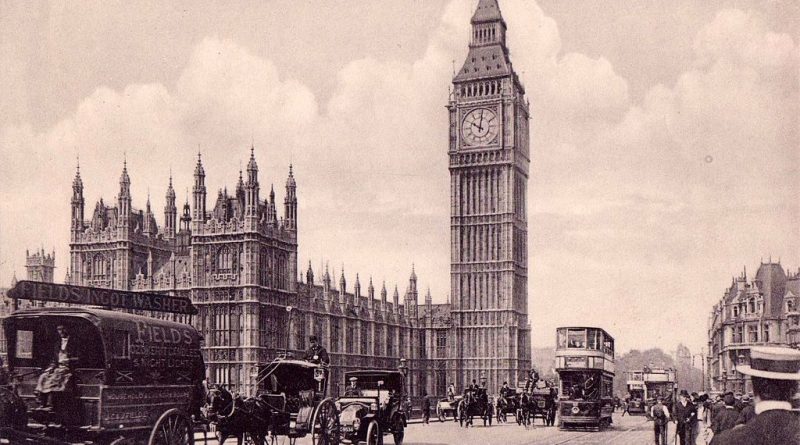Hamish Watt – 1978 Speech on Education
Below is the text of the speech made by Hamish Watt, the then SNP MP for Banff, in the House of Commons on 3 November 1978.
May I say how indebted I am to you, Mr. Speaker, for being slotted in in the debate. It will enable me to return to the part of the United Kingdom where the action now is—namely, the North of Scotland.
There were times during the two opening speeches when I felt that I had wandered on to the stage of some well tried and often played pantomime. I am sure that you will forgive me, Mr. Speaker, if I do not become embroiled in the script of that pantomime.
I shall confine my remarks to the part of the Gracious Speech that states:
“New ways will be sought to help small businesses.”
The next sentence reads:
“Special encouragement will be given to the education and training of young people and others to, increase the supply of skilled manpower”
I have no way of knowing whether it was purely coincidental that the two sentences were strung together. However, I am certain that the two ideas contained in those statements, when taken together, offer a positive way forward.
At present, small businesses are totally frustrated by the apprenticeship system of training. An apprentice spends half of his time on day release or block release the other half being spent with the journeyman who is the apprentice’s mentor and teacher in the practical side of his training. What incentive is there nowadays for firms to take on apprentices when they get so little use of them? It is small wonder that the uptake of apprenticeships is low. The Government, in the shape of the Department of Education and Science, must take a long, hard look at the present inadequacies of the system.
I was pleased to hear the Secretary of State say that she is concerned about the levelling off of young people taking further education. We must reconsider the whole system. It is no good the right hon. Lady or others on the Government Front Bench shutting their ears and saying “This is a matter for the Department of Employment “. It is not. It is a matter for the Department of Education and Science.
An apprentice is as much a student as any university undergraduate. Adult education and training will play an increasingly important role in the country’s economy. Therefore, it must be the joint responsibility of the Department of Employment and the Department of Education and Science to ensure that our young people receive a sound grounding in basic skills. To that end, I advocate that the first two years of any apprenticeship should be regarded as a studentship. I make no excuse for labouring that point and for being totally specific.
As apprenticeships are now constituted, an employer has only two years’ benefit from a four-year apprentice. During the summer I spent many hours in discussion with tradesmen, craftsmen and apprentices in my constituency. They were adamant that something must be done soon to change the system and to give them some incentive to take on apprentices on the one hand and to be apprentices on the other.
Unfortunately, far too few hon. Members have been employers or have been involved with apprentices. They do not realise that a starter apprentice who has not yet gathered the competence or knack of handling tools and machines may be a liability, and in some instances an expensive liability. If they did realise that, they would insist that the Government create incentives for employers to take on apprentices.
An idea offered to me by one employer during the summer was that small firms should be allowed to take on two apprentices per journeyman. If that were done, the journeyman would always have one apprentice with him while the other was on block release. That is an idea that should be taken up. It came from a man who has nearly 40 years’ experience in small business and who cares what happens to his apprentices and to youth generally.
I turn to the plight of the school leaver who cannot get an apprenticeship or a job of any sort. What sort of society is it that throws boys and girls aged 16 on to the scrap heap and condemns them to a life of boredom, hopelessness and frustration? Equally, it condemns them if they use their surplus energy, which so many youngsters have at that age, in acts of vandalism.
It may be that those who occupy the Government Front Bench will claim that we live in a Socialist society. If that is so, it is high time that we saw something of the social face of Socialism. No doubt Ministers will smugly say ” It is nothing to do with us. Responsibility lies with the Secretary of State for Employment, the Home Secretary or somebody else.” I am afraid that responsibility lies with the Department of Education and Science. It is responsible for the guidance of children from the age of 5 to 16. It cannot wash its hands of that responsibility the moment children reach 16.
Responsibility must squarely lie with the Secretary of State for Education and Science to educate and train young people until they have the skills that some employer wants. A system must be evolved in which young school leavers may opt for a six-month training course in a wide variety of skills. For example, there is the need for basic training in electrical engineering, mechanical engineering, hydraulic engineering and, if need be, one course after the other until a boy has sufficient skills for someone to want to employ him. Time does not permit me to give parallels for girls’ courses.
It is symptomatic of the House that no one will ask me at a later stage for my ideas on that subject.
If the words
“Special encouragement will be given to the education and training of young people”
that appear in the Gracious Speech are to have any real meaning, let us have some action soon.
The Prime Minister said a short time ago that Britain has its best chance for 100 years now that we have North Sea oil revenue at our fingertips. I have news for the right hon Gentleman. Scotland now has its best chance for 272 years. With Scotland’s share of its own oil, we shall have the chance to do things differently in a Scottish Parliament and a Scottish economy. We shall have the chance to look after our own young school leavers. We shall have the chance to do something about our unemployed youngsters.
It may be that I was born impatient or that I grew up impatient, but the snail’s pace of this place and of Westminster thinking nearly drives me crazy. I continually tell the people of Scotland that even if Westminster agrees with a Member it takes 15 months to get anything done. If Westminster does not agree with him, it takes three years to get the message across. For example, the SNP was persistent at the beginning of the Parliament in calling for a 50-mile limit for our fishermen. After three years, the whole House agrees that we need such a limit.
Finally, I return to the problem of education of the school leaver. It has been evident to anyone who has in any way been engaged in industry or commerce for the past 20 years that the apprenticeship scheme as we have known it is no longer working. It is not supplying our new developing industries with the skilled manpower that they need if they are to keep in the forefront in a world of rapidly changing technologies. Small businesses need positive help to allow them to take on additional apprentices. This old English tradition of muddling through is no longer good enough, and the people of Scotland are beginning to realise that.
The children of Scotland must be given a fresh chance in life, fresh targets to aim for and fresh opportunities in education and training to reach those targets. We on the Scottish National Party Bench are disappointed that economic power has not been devolved to Scotland, but we are pleased that at least the control of education has been devolved. We intend to give education a new and wider meaning than a Westminster Government have ever given it. We should like, as we go, to commend our fresh ideas to England, but frankly we doubt whether the English will ever shake off their lethargy sufficiently to achieve any worthwhile change. This place can always find obstacles to put in the way of change. The Scottish people have now found a way round those obstacles, thanks to the Scottish National Party. That way is at present called the Scottish Assembly, but soon, by popular demand, it will be called the Scottish Parliament.



